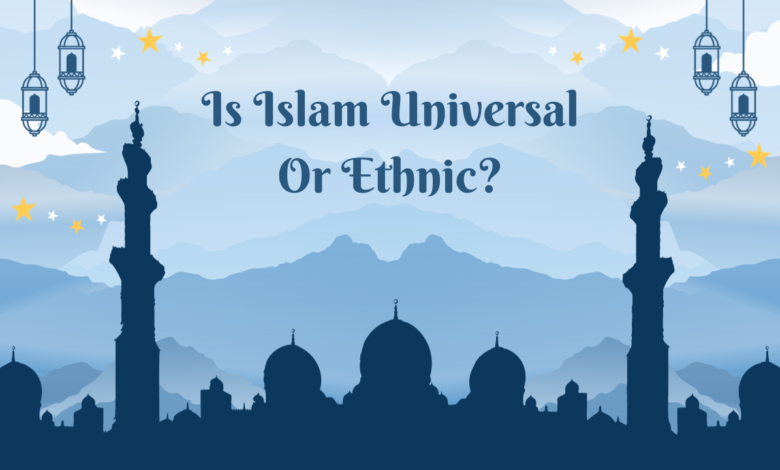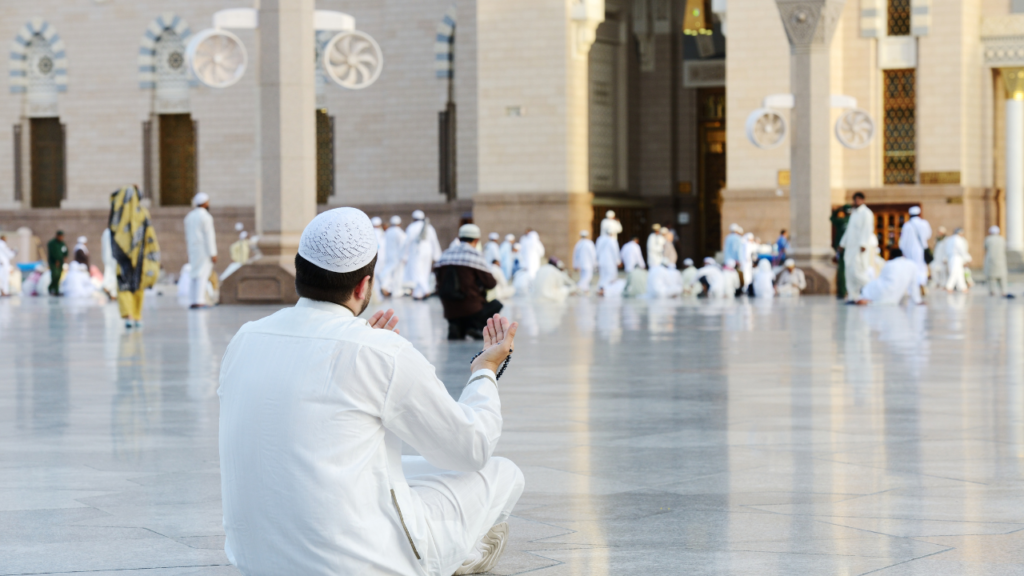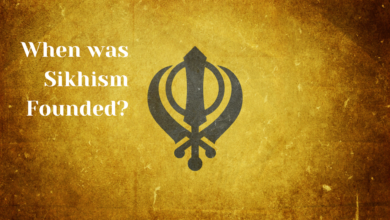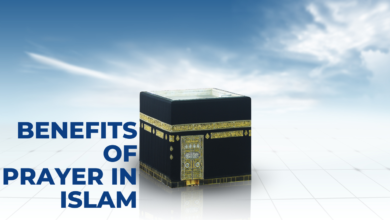
Is Islam Universal Or Ethnic?
Islam is fundamentally a universal religion. Its core teachings and principles are designed to be accessible to people of all ethnicities and backgrounds.

Introduction
The question of whether Islam is universal or ethnic is a complex and multifaceted one. Islam is often perceived as a religion with a global presence, encompassing a wide range of ethnicities, cultures, and languages. However, it is also associated with specific cultural and ethnic identities in various parts of the world. To better understand this issue, we must delve into the historical, theological, and sociocultural aspects of Islam.
Historical Perspective
Islam emerged in the 7th century in the Arabian Peninsula through the teachings of the Prophet Muhammad. At its core, Islam was designed to be a universal religion, accessible to people from all backgrounds and walks of life. The Quran, the holy book of Islam, repeatedly emphasizes that Islam is for all of humanity, regardless of their ethnicity or social status.
Verse 49:13 of the Quran states, “O mankind, indeed We have created you from male and female and made you peoples and tribes that you may know one another. Indeed, the most noble of you in the sight of Allah is the most righteous of you.” This verse underscores the universal message of Islam and its call for unity among all human beings.
Also check.
- What Is The Third Pillar Of Islam?
- What Is The Fourth Pillar Of Islam?
- What To Say When Someone Dies In Islam
- What is Islamism?
- Why is Jerusalem Important to Islam?
Theological Aspects
Islamic theology also emphasizes the universality of the faith. The concept of Tawheed, the belief in the oneness of God, is a fundamental principle in Islam that transcends ethnicity and culture. Muslims around the world share the same core beliefs, such as the Five Pillars of Islam, which include the declaration of faith, prayer, fasting, charity, and pilgrimage to Mecca. These principles are not tied to any specific ethnicity but are applicable to all Muslims.
Furthermore, Islam recognizes the prophethood of numerous individuals throughout history, including Adam, Noah, Abraham, Moses, and Jesus, among others. This acknowledgment of diverse prophetic figures underscores the universal nature of Islam, as it recognizes and respects the contributions of various cultures and traditions.
Sociocultural Diversity
While Islam’s core teachings are universal, the way the religion is practiced can vary significantly across different regions and ethnic groups. This diversity is a product of historical and sociocultural factors, as well as the influence of local customs and traditions. For example, Islamic dress codes, dietary practices, and rituals may vary from one culture to another.
Additionally, Islam has often become intertwined with the cultural and ethnic identities of the regions where it has spread. This phenomenon can be seen in the distinct forms of Islam practiced in countries such as Indonesia, Turkey, Egypt, and Nigeria, each with its unique cultural elements.
Conclusion
In conclusion, Islam can be both universal and ethnic, depending on the perspective from which it is viewed. At its core, Islam is a universal faith with a message that transcends ethnicity and culture. Its theological principles emphasize the oneness of God and the universality of its teachings, making it accessible to people from all backgrounds.
However, the sociocultural diversity within the Muslim world has led to the development of various expressions of Islam, each influenced by the local customs and traditions of the region. This diversity is a reflection of the rich tapestry of human cultures and the adaptability of the Islamic faith.
In essence, Islam’s universality lies in its core beliefs and principles, while its ethnic dimensions are a result of the complex interplay between faith and culture. Recognizing this duality is essential for fostering a deeper understanding of Islam and its place in our diverse and interconnected world.

FAQs
Is Islam a universal religion or an ethnic one?
Islam is fundamentally a universal religion. Its core teachings and principles are designed to be accessible to people of all ethnicities and backgrounds.
What does the Quran say about the universality of Islam?
The Quran emphasizes the universality of Islam in several verses, such as 49:13, which states that humanity is created into “peoples and tribes” to know one another, emphasizing unity and righteousness.
Are there any specific cultural or ethnic aspects within Islam?
While Islam’s core beliefs are universal, its practice can vary due to cultural and regional influences. These variations may include dress codes, dietary practices, and cultural rituals.
Can people of any ethnicity become Muslim?
Yes, Islam is open to people of all ethnic backgrounds, and anyone can convert to Islam by reciting the Shahada, the declaration of faith.
How does Islam reconcile its universal message with the diversity of its practices worldwide?
Islam’s universal message is compatible with diverse practices because it allows for cultural adaptations as long as they do not contradict its core principles.
Are there different schools of thought within Islam based on ethnicity?
While there are various schools of thought in Islam, they are not inherently tied to ethnicity. They often differ in jurisprudential interpretations rather than ethnicity.
Does Islam recognize the diversity of prophets from various ethnic backgrounds?
Yes, Islam recognizes and honors the prophethood of individuals from various ethnic backgrounds, including Adam, Noah, Abraham, Moses, and Jesus, among others.
How can one balance their cultural identity with their Islamic faith?
Many Muslims around the world integrate their cultural identity with their faith, finding ways to practice Islam in a manner that is culturally meaningful while adhering to its core principles.
Is there a specific way to practice Islam that is considered more universal than others?
The Five Pillars of Islam, which include the declaration of faith, prayer, fasting, charity, and pilgrimage to Mecca, are considered universal practices shared by all Muslims.
How can a better understanding of Islam’s universal and ethnic dimensions promote tolerance and unity?
Recognizing the dual nature of Islam fosters a deeper understanding of its place in our diverse world, promoting tolerance and unity by emphasizing shared values and principles while respecting cultural diversity.




